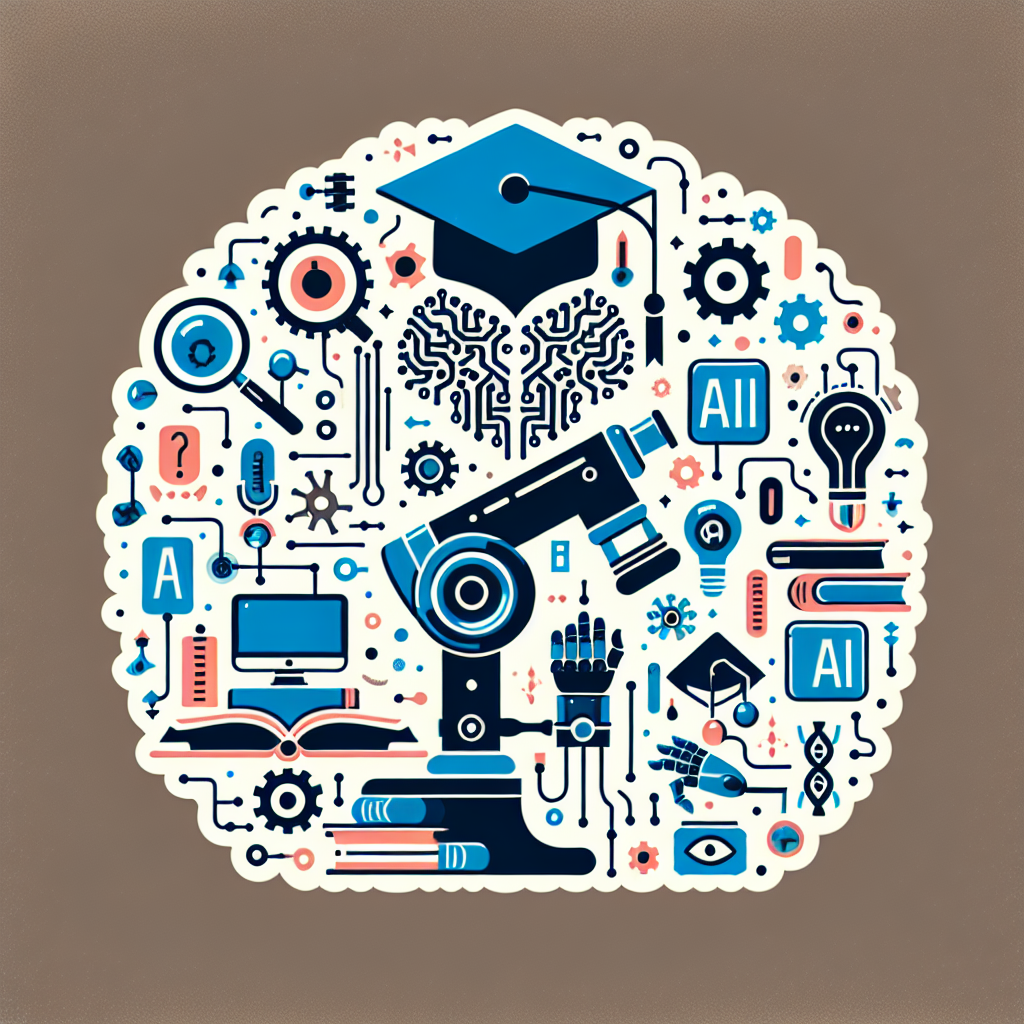Artificial Intelligence (AI) has been making waves in various industries, including education. AI technology has the potential to revolutionize the way we conduct research and evaluate educational practices. In this article, we will explore the role of AI in education research and evaluation, and discuss how this technology can be used to improve outcomes for students and educators.
AI in Education Research
One of the key benefits of using AI in education research is its ability to process and analyze large amounts of data quickly and accurately. Researchers can use AI algorithms to sift through vast amounts of information to identify patterns and trends that would be impossible for humans to detect on their own. This can lead to more accurate and insightful research findings that can inform educational practices and policies.
AI can also be used to generate new insights and discoveries in education research. For example, researchers can use AI algorithms to analyze student performance data and identify factors that influence academic success. This can help educators tailor their teaching strategies to meet the needs of individual students, leading to improved learning outcomes.
Another area where AI can be particularly beneficial in education research is in the field of natural language processing (NLP). NLP technology can be used to analyze and interpret text data, such as student essays or teacher feedback, to identify key themes and trends. This can provide researchers with valuable insights into student learning processes and help them develop more effective teaching strategies.
AI in Education Evaluation
In addition to its role in research, AI can also be used to evaluate educational programs and practices. By analyzing student performance data, AI algorithms can help educators identify areas of improvement and make informed decisions about how to best support student learning.
AI can also be used to assess the effectiveness of educational interventions and programs. For example, researchers can use AI algorithms to conduct randomized controlled trials to evaluate the impact of a new teaching method or technology on student outcomes. This can help educators determine which practices are most effective and allocate resources accordingly.
One of the key advantages of using AI in education evaluation is its ability to provide real-time feedback to educators. By analyzing student performance data in real-time, AI algorithms can identify students who are struggling and provide personalized recommendations for how to help them succeed. This can help educators intervene early to prevent academic failure and support student learning.
FAQs
Q: How can AI be used to improve student learning outcomes?
A: AI can be used to analyze student performance data and identify factors that influence academic success. By tailoring teaching strategies to meet the needs of individual students, educators can improve learning outcomes and support student success.
Q: How can AI help educators evaluate the effectiveness of educational programs?
A: AI algorithms can analyze student performance data to assess the impact of educational interventions and programs. By conducting randomized controlled trials, researchers can determine which practices are most effective and make informed decisions about how to best support student learning.
Q: What are some of the challenges of using AI in education research and evaluation?
A: One of the challenges of using AI in education research and evaluation is ensuring the privacy and security of student data. Researchers must adhere to strict ethical guidelines and data protection regulations to protect student information.
Q: How can educators benefit from using AI in research and evaluation?
A: Educators can benefit from using AI in research and evaluation by gaining insights into student learning processes and identifying areas for improvement. By using AI algorithms to analyze student performance data, educators can make informed decisions about how to best support student success.

